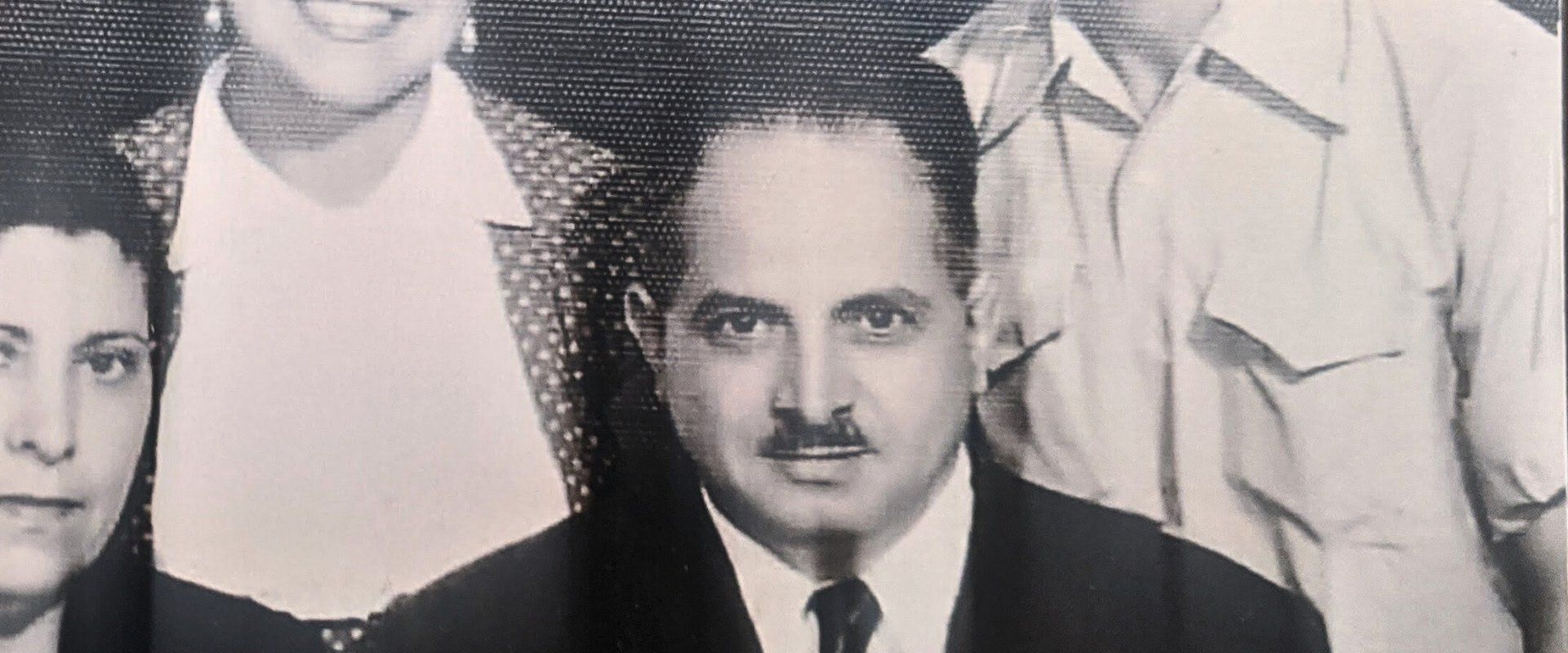
Sa’adia Kobashi was born in the small village of Khubesh, Yemen, in 1902. During Passover of 1909 his father Yihye, who was the village leader, hosted a meeting to discuss the idea of moving to the Land of Israel. Though the inhabitants of the village (most of whom were silver- and copper-smiths) lived in peace with their Muslim neighbors and were financially comfortable, they were determined to fulfill their dream, and decided to begin the journey to Zion the day after Shavuot.
And indeed, seven weeks after that meeting, they set out and – led by a Muslim guide – made their way to the coast of the Red Sea by foot, donkey and camel. In Midi, they boarded a sailboat, at Metzawa they changed to a steamboat to Port Said, and finally arrived in Jaffa in mid-summer.
Once in the Land of Israel, the group walked to Jerusalem, and seven-year-old Sa’adia began attending religious schools. He ultimately became a teacher, a principal, one of the leaders of the Yemenite community in Israel and its representative on Moetzet HaAm, the Provisional State Council.
Stuck in besieged Jerusalem, Kobashi was unable to attend the Declaration ceremony itself, and added his signature to the scroll during the first ceasefire, a month later.
He and his wife Malka had three children, and his son Avinoam, who is himself ninety-one, recalls that his father wore a jacket, tie, and hat every single day of his life.
Sa’adia Kobashi was a modest man, who preferred education to politics, and religion to public affairs. He died in relative obscurity in 1990, at the age of 87.
The thirty-seven people who signed Megillat Ha’Atzmaut on May 14, 1948, represented many factions of the Jewish population: there were revisionists and Labor Party apparatchiks; capitalists and communists and socialists; kibbutznikim, moshavnikim and city-folk; charedi rabbis and atheists.
Over the course of the past several months, our team has diligently tracked down the closest living relative of each one of these signatories, and interviewed them. We talked about their ancestors and families, about the promise of the Declaration, the places in which we delivered on that promise, the places in which we exceeded our wildest dreams, and also about the places where we fell short.
And it is through these descendants of the men and women who – with the strike of a pen – gave birth to this country of ours, that we wish to learn something about ourselves.
Today we’ll meet Sa’adia Kobashi, and his son, Avinoam Kobashi. He’ll present one of the many political perspectives we’ll be featuring throughout the series.
For a fascinating memoir Kobashi wrote on the occasion of his eightieth birthday, see Yalkut HaLevi (Hebrew).
In 1961 Eliezer Whartman of the Israel State Archives conducted a series of interviews with 31 of the 37 signatories of the Declaration of Independence. For the full interview with Saadia Kobashi, see here.
Zev Golan’s 1988 audio interview with Saadia Kobashi is available here.
For a recent interview with Batya Herman, Sa’adia’s daughter, see this short video.
For Kobashi’s obituary, see this January 1990 Ma’ariv article.
In 1901, Hermann Burchardt, a German-Jewish photographer, spent a year living with the Jewish community of Sana’a, Yemen. Some of his magnificent photographs can be seen here. A far more extensive archive of photographs, taken by Shlomo Yefet, a Yemenite-Israeli Jew who went back to Yemen to assist with Operation Magic Carpet (also known as Operation On Wings of Eagles), which brought some 50,000 Yemeni Jews to Israel in 1949-1950, is available here.
For a Hebrew site devoted to the social and cultural legacy of the Jews of Yemen, including many links to traditional Yemenite music, see this website.
Mitch Ginsburg and Lev Cohen are the senior producers of Signed, Sealed, Delivered? This episode was mixed by Sela Waisblum. Zev Levi scored and sound designed it with music from Blue Dot Sessions. Our music consultants are Tomer Kariv and Yoni Turner, and our dubbers are Leon Feldman and Yoav Yefet.
The end song is HaMori (lyrics and music – Shlomo Machdon), performed by Daklon (Joseph Levy).
This series is dedicated to the memory of David Harman, who was a true believer in the values of the Declaration of Independence, in Zionism, in democracy and – most of all – in equality.